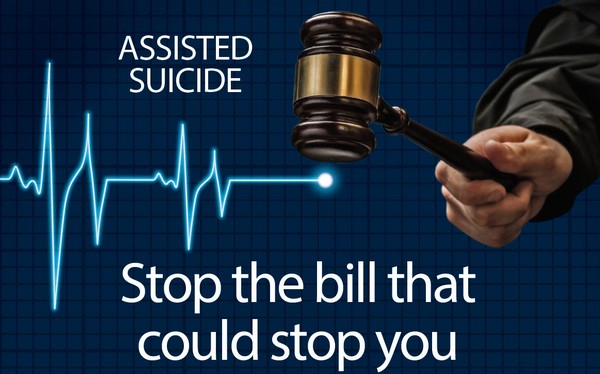
Media Release 31 March 2019
Family First NZ, a member of the Care Alliance which has analysed the almost-39,000 submissions made regarding David Seymour’s assisted suicide bill, says that there is overwhelming opposition to the bill being considered by Parliament and that MPs should vote against the bill at 2nd Reading.
The just-released report provides an analysis of 38,707 written submissions made to the Justice Select Committee, each of which was read by volunteers of the Care Alliance. They say that the submissions “represent the views and stories of a large, diverse and thoughtful cross-section of all New Zealanders; young and old (aged 8–94), different ethnicities (Maori, New Zealand European, Pasifika, Asian), different occupations and walks of life, religious and non-religious, conceptual and experiential. In short, the submissions paint a heart-felt and deeply human picture of the views held by many New Zealanders who have considered the implications of legalising euthanasia and assisted suicide, and had sufficient strength of feeling to write in and make their views known.”
The analysis reveals the following:
- Overall, 91.8% were opposed to the Bill
- 93.5% of submissions received from doctors, nurses and other health care staff were opposed
- 90.6% of organisations which submitted were opposed
- 90.5% of submissions made no reference at all to religious arguments
- all submissions made by churches were opposed, including a Buddhist group and a Muslim charitable organisation supported by 13 other Muslim welfare groups and organisations within NZ
“Assisted suicide is not a simple yes / no answer. Those who have taken time to consider the consequences and implications of assisted suicide quickly realise its major dangers – especially to the vulnerable, elderly and disabled. This nuance is difficult to capture with a simple yes / no phone survey, sometimes with leading questions,” says Bob McCoskrie, National Director of Family First NZ.
“ACT MP David Seymour’s significant backdowns on his assisted suicide bill last year indicate just how weak and flawed the bill is. The backdowns are certainly in contrast to his earlier attacks on our justified concerns, including his statements that There’s just so much scaremongering that doesn’t stand up to evidence and One of the biggest obstacles are MPs who are not in touch with their electorates…and also MPs who may have been coloured by some of the scare-mongering from the other side. There was never any ‘scaremongering’. There was – and continues to be – opposition to this bill based on credible research internationally in jurisdictions that have euthanasia available, and from medical professionals in New Zealand who know the effect such a law would have on their work and on society.”
“(The Euthanasia Bill) is a political stunt that will give profile to David Seymour”- Dr David Clark – Minister of Health (June 2017)
The key arguments advanced by submitters opposed to the Bill fell into six main categories:
- Implementing the Bill would lead to multiple adverse societal impacts on vulnerable people including the terminally ill.
- Experience in the few overseas jurisdictions that have legalised assisted suicide and euthanasia is not reassuring, and it inevitably leads to broadened eligibility criteria.
- State-approval through legalisation sends a powerful message that assisted suicide and euthanasia are socially acceptable, undermining suicide prevention efforts.
- Ending patient lives is not a part of healthcare, medical treatment or what doctors are trained to do, and it will erode doctor-patient relationships and trust.
- Terminating a life through administering lethal drugs is contrary to a medical ethics tradition that can be traced back to the Hippocratic Oath in Greek times.
- Palliative care properly implemented and resourced adequately relieves suffering and demonstrates true compassion without loss of hope.
“Even if the bill was limited to just the terminally ill, some people will be euthanised on account of a disease they thought they had but did not. Prognosis is an uncertain procedure. Many people know or have heard of a person who, having been given a pessimistic prognosis, has lived for many years to tell the tale. There will be those who decide for euthanasia on the basis of an unduly pessimistic prognosis. There is also concrete evidence from those countries which have authorised euthanasia that the availability and application of euthanasia expands to situations never initially envisaged as indications for it.”
“The promotion of assisted suicide is a message that will be heard not just by those with a terminal illness but also by anyone tempted to think he or she can no longer cope with their suffering – whatever the nature of that suffering. This is the real risk to young and to vulnerable people, the disabled and the elderly people if NZ follows the path of promoting – and allowing – assisted suicide.”
ENDS


